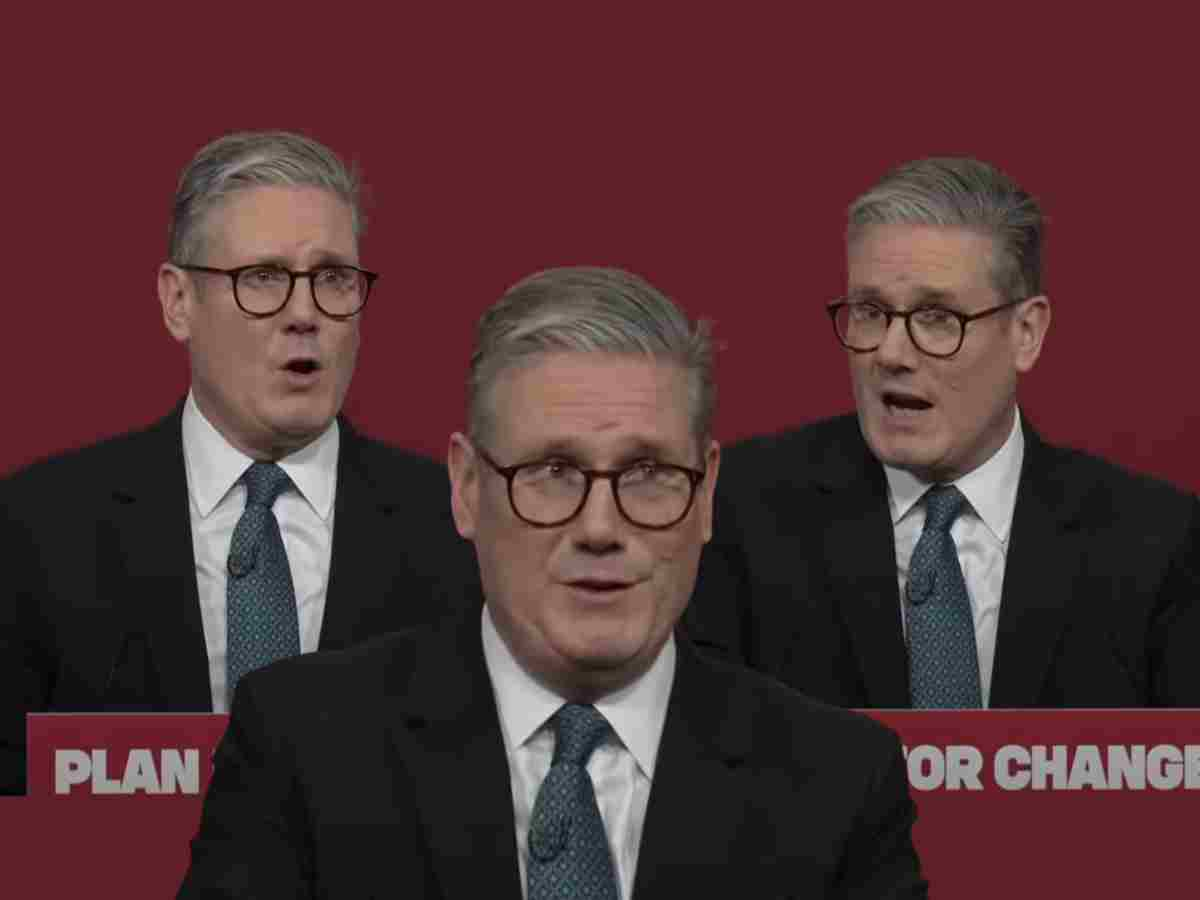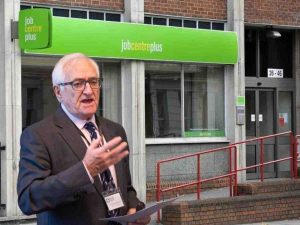Just five months into Keir Starmer’s premiership and he has already carried out a Labour relaunch. That makes sense, given the Labour Party has plummeted in the polls.
Labour relaunch just as it’s behind Reform in polls
One poll shows Labour is not only back behind the Conservatives, but also behind Reform. It looks like Nigel Farage’s party is filling the vacuum left by Labour’s centrist approach. It’s clear the authentic, progressive left needs to mobilise to stop the far right through a new party or alliance (as France shows, a broad alliance can defeat the far right). In September, Jeremy Corbyn attended a meeting to establish a new left party called ‘Collective’.
For the 2024 election, Labour were over 20 points ahead of Reform. But a 4 December poll from Find Out Now has the Conservatives leading on 26%, Reform second on 24% and Labour third on 23%.
Living standards already set to fall
It’s fitting Starmer’s reset happened at Pinewood Studios, because the Labour leadership are clearly a bunch of actors.
In the major relaunch speech, Starmer repeated the Labour administration’s key aims. He pledged “higher living standards in every region of the country”. But research from the Joseph Rowntree Foundation (JRF) shows Labour’s October budget will leave the majority of people worse off. JRF modelling found that the average family will have £770 less in real terms by October 2029.
That means Starmer is failing already. He said:
Living standards raised, people better off, more cash in their pocket
On top of that, those with the least broad shoulders will relatively lose more from the budget. The poorest third of households will see their disposable income drop by 3.3% by October 2029. And the richest third will only see a drop of 1.7%, according to JRF.
This is partly due to a lack of meritocratic, redistributive policies from Starmer and Chancellor Rachel Reeves. We live in a country where the richest 1% already have more wealth that 70% of the country, according to Oxfam. There’s no way that is earned, yet Starmer has failed to introduce a wealth tax to address this.
Child poverty – already increasing under Labour
Another of Labour’s relaunch aims (rebranded ‘milestones’) is “the best start in life for every child”. Yet Starmer and Labour’s decision to keep the Tories’ two child benefit cap has plunged 109 children into poverty every day since the election. This is consistent with findings from JRF, which state that 100,000 more children are set to be in poverty by 2029.
Social security cuts are also a factor in families and and therefore children facing poverty. Between 2010 and 2021, the Conservative government cut £37bn from the welfare budget. That’s in part through freezing benefits so they do not keep up with inflation. In Labour’s first budget, the governing party failed to even nearly reverse the Tories’ cuts.
It’s clear Labour did nothing for child poverty in its budget. That’s why institutions are making recommendations for how to address the fact that one in four households with children under four are living in food poverty.
Fix the housing crisis – does Labour want more rip off rents and profit?
A further aim Starmer focused on his speech was “Britain rebuilt with 1.5 million new homes”. But it’s unclear how affordable these homes will be. The party has not set a target of how many social homes it plans to deliver. Or better still – the government could stop treating homes as assets at all and instead provide them at cost price with affordable pay back schemes, popping the housing bubble and removing profit from an essential in one fell swoop.
88% of the state’s housing budget currently goes into the pockets of landlords through housing benefit. The cost of housing has ballooned and Labour should adresss this. Millennials spend about 28% of their income on housing costs. This has tripled at best. People of a similar age in the 60s and 70s spent around 5-10% of their income on housing.
Energy – is Starmer really bringing ‘change’ here?
In another of Starmer’s ‘milestones’, he said: “clean power by 2030”. But perhaps this is just nice-sounding rhetoric, because Labour has committed £22bn for fossil fuel companies to issue ‘carbon capture’ schemes that the evidence shows don’t work. That’s almost three times the £8bn he has pledged for Great British Energy to ‘crowd in’ private investment for renewable energy.
Additionally, Starmer has dropped his Labour leadership pledge for public ownership of energy. This would reduce bills for people and businesses across the board, helping control inflation. Initial capital investment in a public Green New Deal (full transition to renewables) would pay for itself through consumer bills later paid to the public purse. Then it would bring returns for the government, which could then lower down bills further (renewables are much cheaper) or be reinvested elsewhere.
A fitting Labour relaunch
It’s fitting Starmer is already relaunching his government. His first budget failed to address the key issues this country faces and his party has tanked in the polls just months into his premiership.
Featured image via The Independent – YouTube




